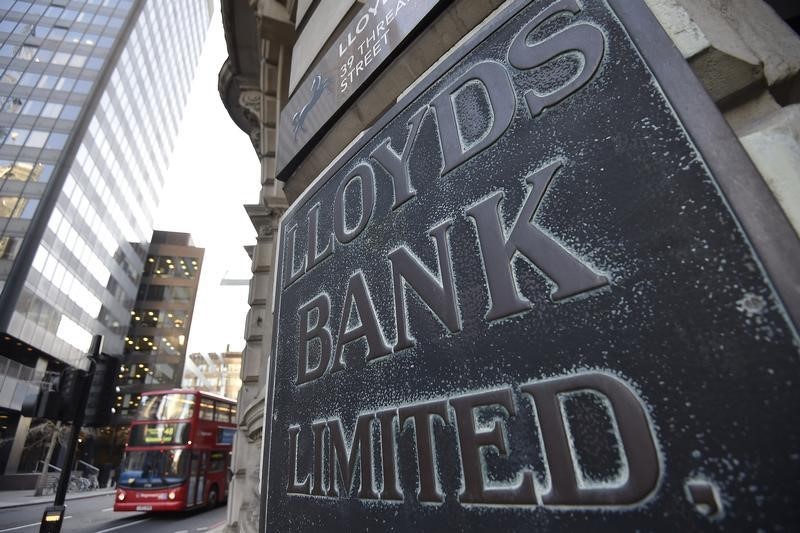By Matt Scuffham
LONDON (Reuters) - Shares in British banks jumped on Friday as the Conservative party looked set to form the next government, removing fears of a break-up of the biggest among them and further hikes in a tax on their assets.
The market value of the five biggest British banks had increased by 9.1 billion pounds by 1210 London time, fuelled by relief at a clear election outcome in favour of a party many senior bankers see as more business-friendly.
Shares in Lloyds (L:LLOY) were up 6.7 percent, the highest level since 2008 when the government began a bail-out that put 41 percent of the bank in state hands.
The increase gives the state a 2.3 billion profit on its 20 percent remaining stake based on current share prices and will encourage the Conservatives to go ahead with their pledge to sell 9 billion pounds worth in shares over the next year, including a discounted offer to private retail investors.
RBS (L:RBS), now 80 percent government-owned, was up 6.4 percent, although taxpayers are still sitting on a 13.4 billion pound loss on the RBS investment.
Other banks' shares rose too, with Barclays (L:BARC) up 4.9 percent and HSBC (L:HSBA) and Standard Chartered (L:STAN) rising by 1.3 percent and 1.6 percent respectively.
The opposition Labour party had said it would increase the bank levy, based on banks' assets, by 800 million pounds to pay for spending on childcare and job guarantees if it won the election.
REFERENDUM CONCERN
London's financial services industry remains concerned about the Conservative's commitment to a referendum on Britain's membership of the European Union in 2017.
"In time, the focus of investors will shift to the uncertainty that will come ahead of the proposed referendum on the UK's membership of the European Union in 2017, which could prompt some domestic and overseas investment to be delayed," said Azad Zangana, senior European economist at Schroders (LONDON:SDR).
The British Bankers Association urged the new government to ensure that UK banks remain competitive with overseas rivals, a coded plea for what many bankers regard as excessive regulation of the industry since the crisis to be toned down.
"We need to focus now on implementing the reforms that have already been legislated for, and ensure that banking – our biggest export industry – remains globally competitive," BBA Chief Executive Anthony Browne said.
The performance of the Scottish National Party, which rampaged to victory north of the border, has set the stage for a new battle over independence and raises the question of whether Edinburgh-based RBS and Lloyds will again review the location of their headquarters.
"A second referendum in this term of the government looks highly likely and investors including UKFI (which manages the government's stake) would want the banks to relocate," said Bernstein analyst Chirantan Barua.

Friday's share price rises mean that the value of taxpayers' stakes in RBS and Lloyds, which were bailed-out at a combined cost of 66 billion pounds during the 2007-9 financial crisis, increased by 2.8 billion pounds.